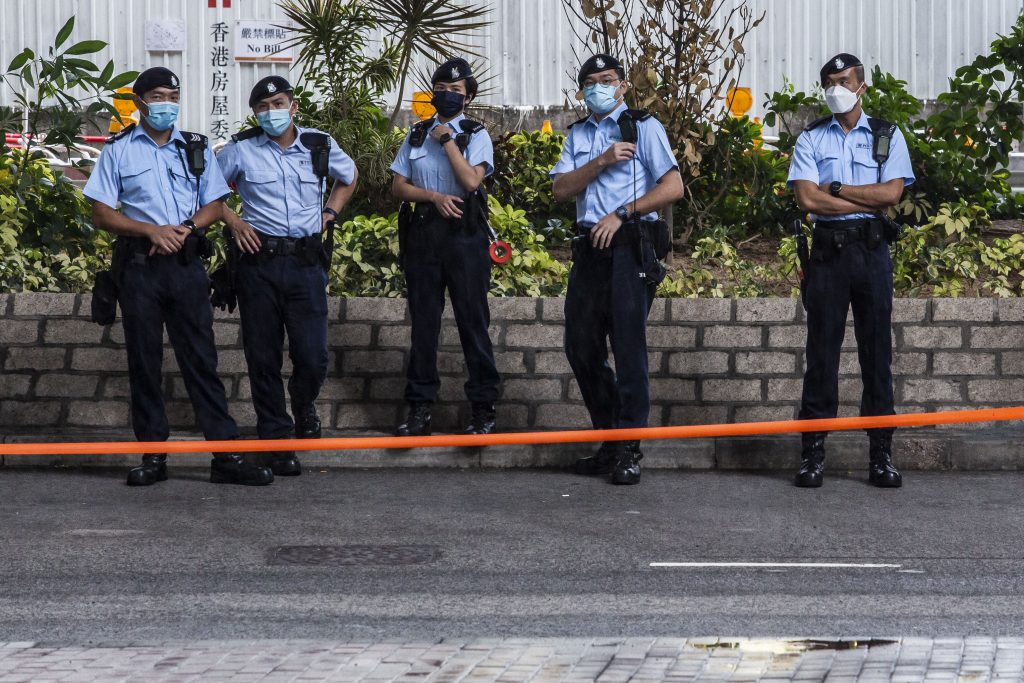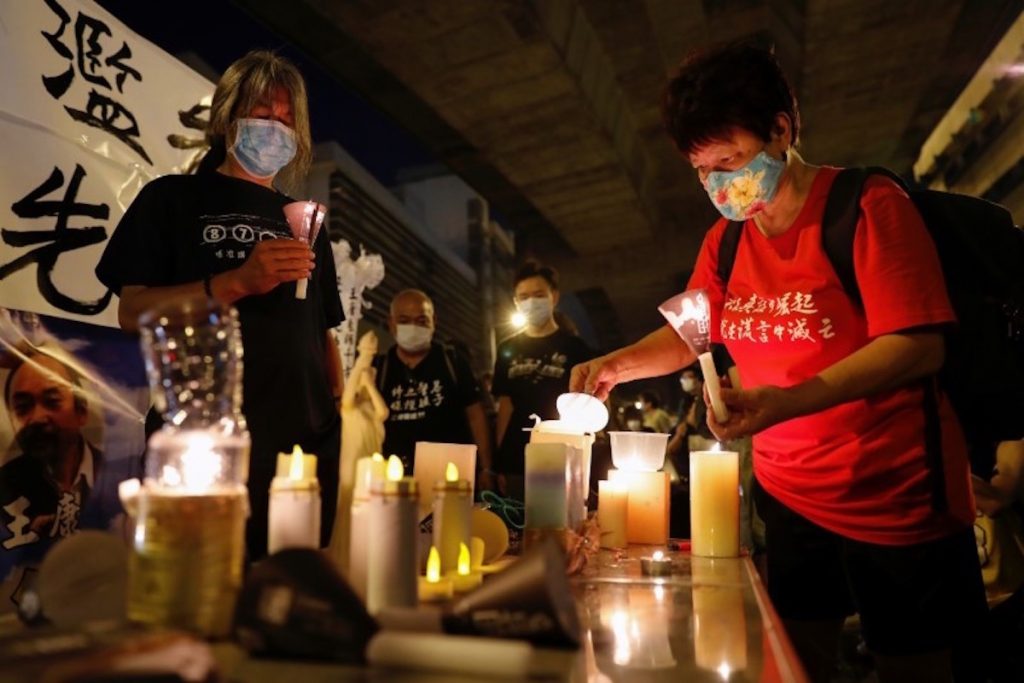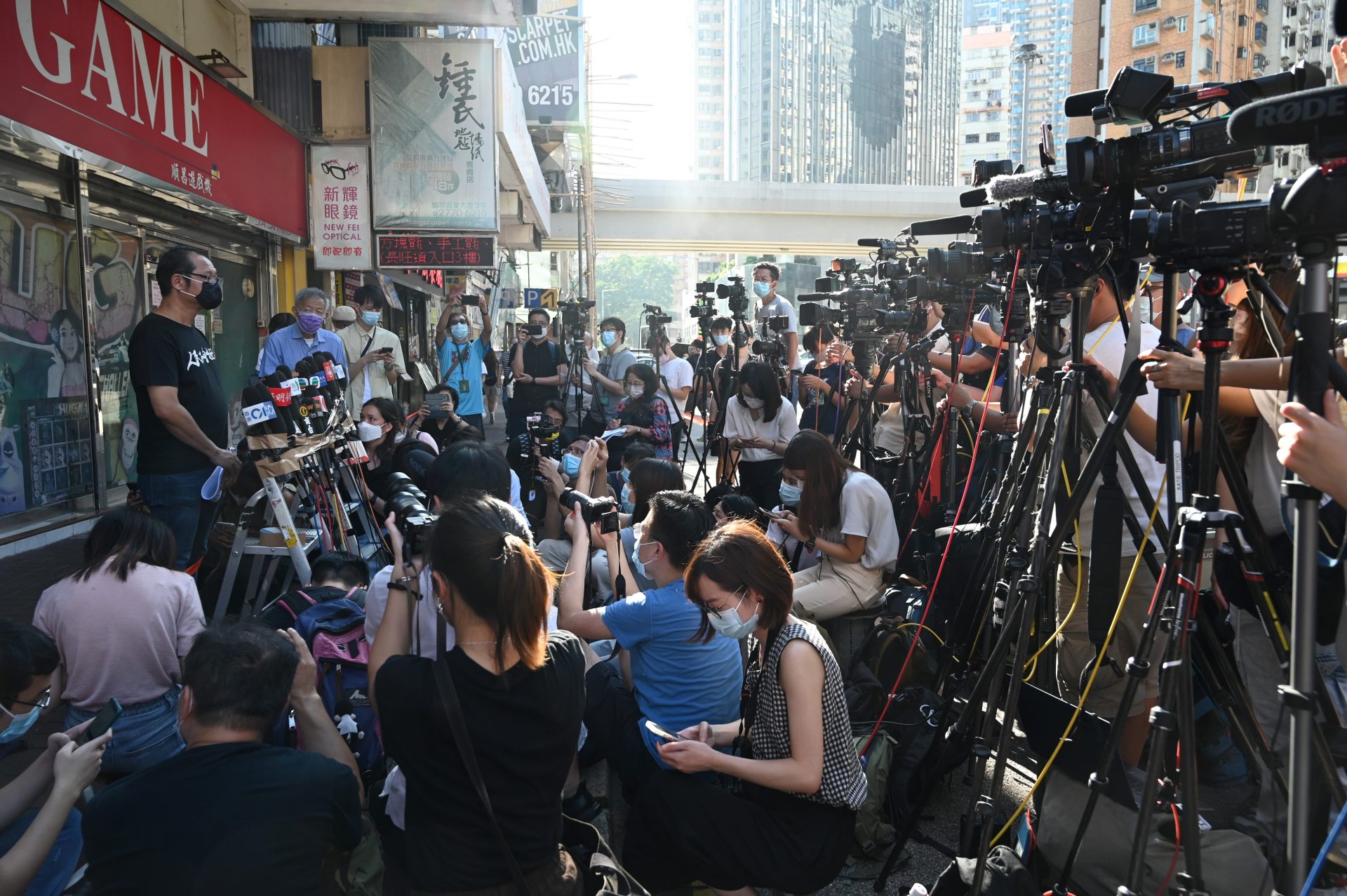The Hong Kong pro-democracy group that organized three decades of vigils commemorating the victims of Beijing’s Tiananmen Square crackdown voted to disband Saturday in the face of China’s sweeping clampdown on dissent.
The Hong Kong Alliance was one of the most prominent symbols of the city’s former political plurality, and its dissolution is the latest illustration of how quickly China is remolding the business hub in its own authoritarian image.
After announcing the decision to disband, a representative of the alliance read out a letter from their chairman Lee Cheuk-yan, who is currently in jail.
“A regime cannot take away the people’s memory and conscience,” the letter read. “The beliefs of the Hong Kong Alliance will be passed on in the hearts of Hong Kongers.”
Many of the alliance’s leaders are in custody for taking part in the city’s democracy movement.
Earlier this month, police charged three senior figures, including Lee, with subversion — a national security crime.
That same week, officers raided a shuttered museum the group ran commemorating Beijing’s deadly 1989 Tiananmen Square crackdown, hauling away exhibits, memorabilia and photographs of the historic event.
Police also ordered the group to take down its website and social media platforms and authorities vowed to revoke its registration as a company.
The alliance’s leadership was split on whether to disband.
“I still hope to show Hong Kong Alliance’s beliefs to the world and continue this movement that has already lasted for 32 years,” Chow Hang Tung, a barrister and one of the three leaders charged with subversion, wrote from prison earlier this week.
But other key figures, including Lee and Albert Ho, had signaled they supported dissolving the group.
The Liaison Office, which represents Beijing’s central government in Hong Kong, called the group’s disbanding “the inevitable fate of anti-China groups in Hong Kong,” according to state-run Xinhua news agency.
It also said that the group’s “destabilizing activities” would “not be written off,” and that those who “messed up Hong Kong cannot escape justice,” Xinhua said.

Dissent purged
Huge and often violent democracy protests engulfed Hong Kong in 2019. China responded by imposing a new national security law that has criminalized much dissent and launching a campaign to purge the city of people and groups deemed to be disloyal.
More than 90 people have been charged under the law, while dozens of civil society groups — including unions and political parties — have dissolved.
The alliance was told it was under investigation by the national security unit earlier this year and was ordered to hand over a host of documents and details on its membership.
Unlike many opposition groups which quickly folded or obeyed police requests, it took a more defiant approach.
Many of its leading figures are lawyers and they argued the police request was illegal.
Once the alliance confirmed it was not going to cooperate with the investigation, police brought subversion charges against its leaders.

30 years of vigils
Officially titled the Hong Kong Alliance in Support of Patriotic Democratic Movements of China, the group was founded in May 1989 to support students holding democracy and anti-corruption rallies in Beijing.
A month later, China’s leaders sent tanks and soldiers to crush the movement in Tiananmen Square, a decision it has since heavily censored and removed from public record on the mainland.
Over the following decades, the alliance kept the memories of Tiananmen alive and called for China’s communist leaders to embrace reforms with slogans like “End one-party rule” and “Build a democratic China”.
Each June 4, the group organised candlelight vigils in Hong Kong’s Victoria Park that were routinely attended by tens of thousands of residents, the crowds swelling in recent years as anger over how Beijing was running the city intensified.
That anger exploded in seven months of democracy protests in 2019.
Beijing has since made clear it will no longer tolerate Tiananmen remembrance in Hong Kong or Macau, the only two places within China where public remembrance could take place.
China’s top official in Hong Kong recently described those who call for “ending the one-party dictatorship” as “real enemies”. Police action against the alliance then intensified.
The last two Tiananmen vigils were banned, with authorities citing the coronavirus pandemic and security fears.







